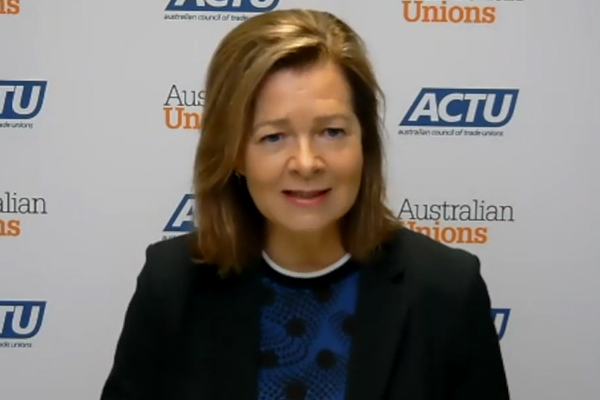Australian workers could be caught in the crosshairs of the country’s biggest industrial relations shakeup in over two decades, according to the Labor Party and union insiders.
Tony Burke, Shadow Minister for Industrial Relations, is claiming that pockets of Coalition backbenchers are pushing for exemptions for small-and-medium-sized businesses to make it easier to sack workers by lobbying to weaken the nation’s unfair dismissal laws.
Such lobbying efforts, combined with the introduction of proposed legislation in the way of the “Ensuring Integrity” and “Workers Benefits” bills in the most recent sitting session of Federal Parliament, could see the erosion of workplace laws not seen since WorkChoices seen in John Howard’s years as Prime Minister.
Liberal MPs Tim Wilson, Andrew Bragg and Jason Falinski are said to be leading the charge for these latest changes to overturn unfair dismissal laws and organised their agendas surreptitiously when Parliament had its last sitting sessions the week ending August 2.
Those ministers are also said to have been mobilising their efforts on the heels of a meeting among themselves and 14 of their colleagues under the auspices of a private briefing with the Australian Chamber of Commerce and Industry.
Burke – clearly incensed by these developments and motivated that protections for workers regained by Labor with the enactment of the Fair Work Act 2009 as a response to the Howard era’s WorkChoices legislation don’t get wound back themselves – intends on pushing his case to maintain Australia’s strong workplace laws against the legislative attempts led by the Coalition Government.
In a statement, Burke said:
The Liberals didn’t mention IR during the election campaign and now we know why — because they want to resurrect key elements of WorkChoices.
Unfair dismissal laws protect people from being dismissed from their job in a harsh, unjust or unreasonable manner. They are an important safeguard.
However, Burke warns that a revival of WorkChoices could be on the cards unless Labor fights its best fight to block the Coalition's proposed set of industrial relations legislation.
'But now the Liberals once again have a compliant Senate, just as they did in 2004, they seem hellbent on launching a fresh attack on workers’ pay, conditions and rights,' Burke added.
Not helping matters for Labor, and likewise stoking the fires for the Coalition, are comments from Queensland Liberal-National Party Senator Amanda Stoker.
Speaking in Sydney at CPAC – a highly-charged weekend conference of national and global conservatives – Stoker she put forth claims that the nation’s current workplace laws protecting workers from unfair dismissal actions were “a block to growth”. She also noted that the current batch of modern awards under the Fair Work Act are “unworkably complex”.
As such, Stoker’s views on industrial relations favour the labour-hire model – with all of its shortcomings and debate over its regulations – over present structures of modern awards, enterprise bargaining agreements and unfair dismissal protections.
The union movement stands diametrically opposed not only to Stoker’s comments but also the trinity comprised of the two workplace-related pieces of legislation plus the backbench lobbying efforts.
In a statement, ACTU Secretary Sally McManus said:
The Coalition loves labour hire as a business model, and they want to reduce the protections that working people have against unfair dismissal so that even more jobs are made as insecure as labour hire jobs.
Labour hire is now big business, and it’s destroying lives and communities in electorates such as [MPs] George Christensen’s, Michelle Laundy and Ken O’Dowd’s in Central Queensland.
Labour hire has become one of the most demeaning and demoralising forms of work, where you have less rights, less pay and little job security. To want to impose these kinds of conditions on even more workers is reprehensible, and it takes our country in the wrong direction.
Prime Minister Scott Morrison and his Industrial Relations Minister Christian Porter agree that any attempted reforms should be reviews done as an evidence-based process and not an ideologically-driven one that looks like another run at WorkChoices.
A spokesman for Porter has said that any review will be quite thorough:
[Minister Porter] will be engaging with all stakeholders — including union leaders and industry groups - to discuss what improvements can be made within his industrial relations portfolio to increase jobs and wages growth and strengthen the economy.
Firstly, any change must put upward pressure on wages and thereby help employees. Secondly, it would need to help strengthen business.Thirdly, it would need to make the Australian economy stronger. If those three criteria can be met, the Minister would then seek to build consensus for change before moving forward.
However, detractors of the Coalition's industrial relations agenda insist that people should be put first. And that such policies should foremost take into account the lives of affected workers.
'People’s elected representatives should be standing up for their communities rather than doing the bidding of big business,' said McManus.
William Olson was a freelance journalist from 1990-2004 and hospitality professional since late 2004.
Support independent journalism Subscribe to IA.












